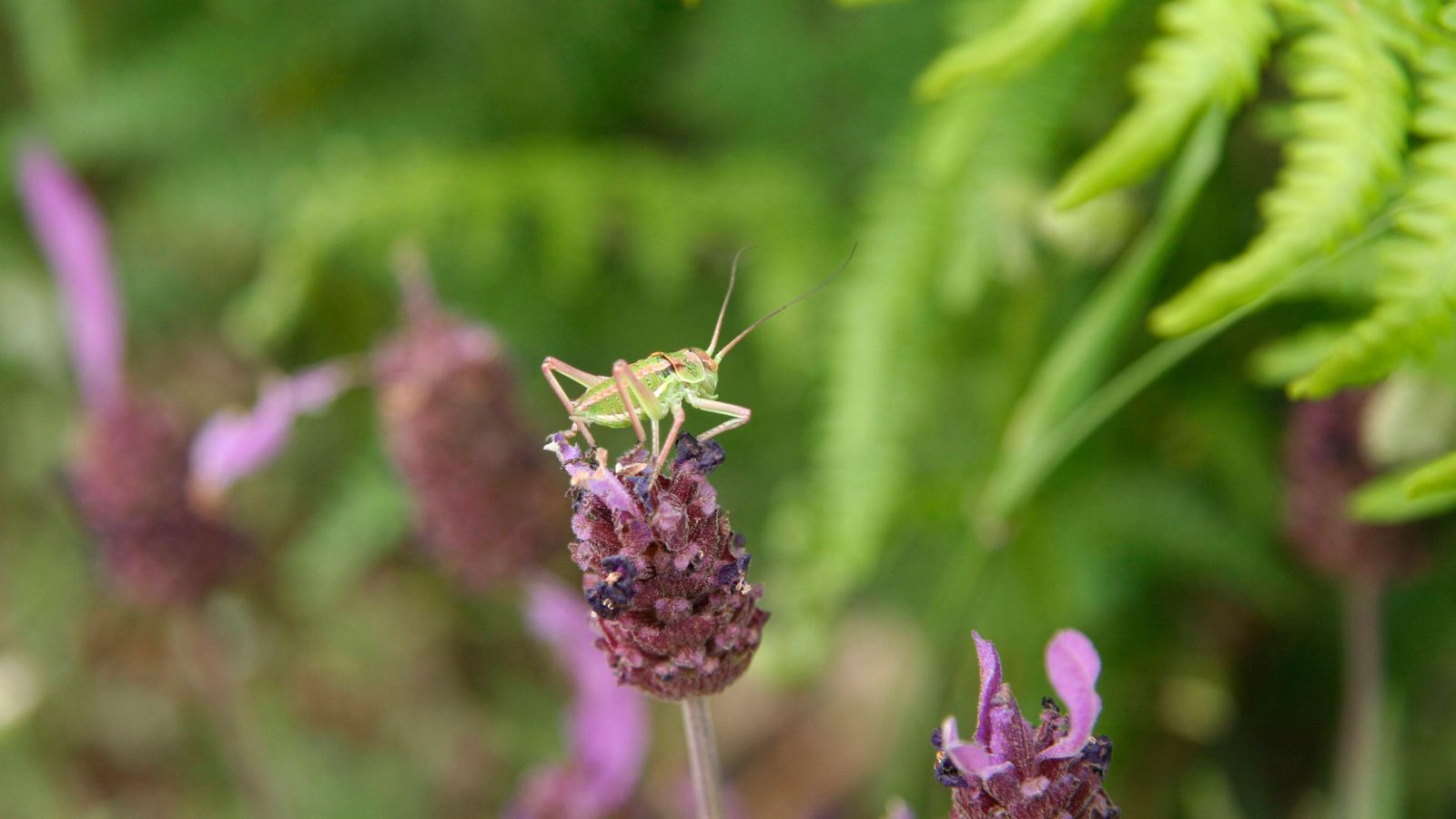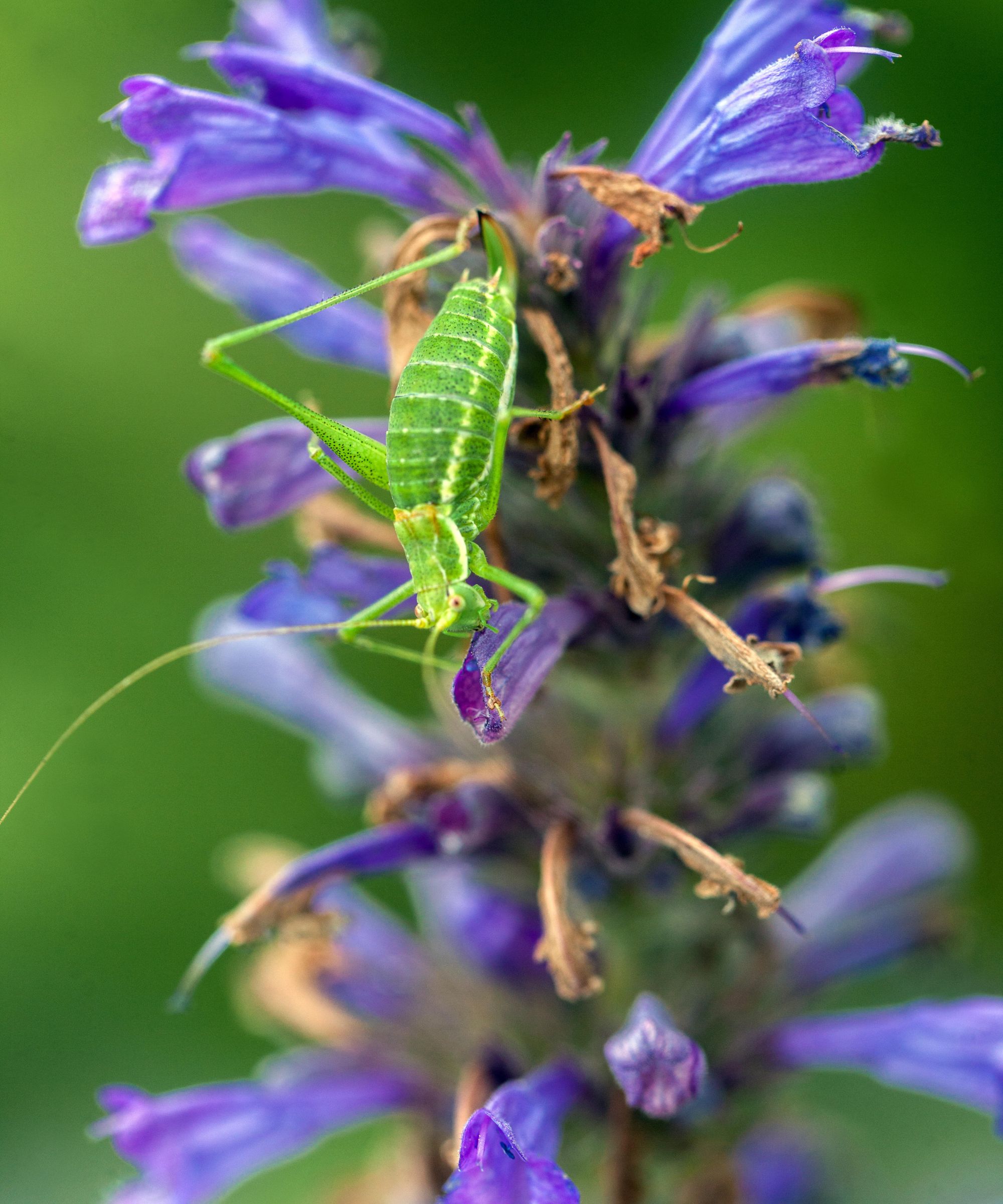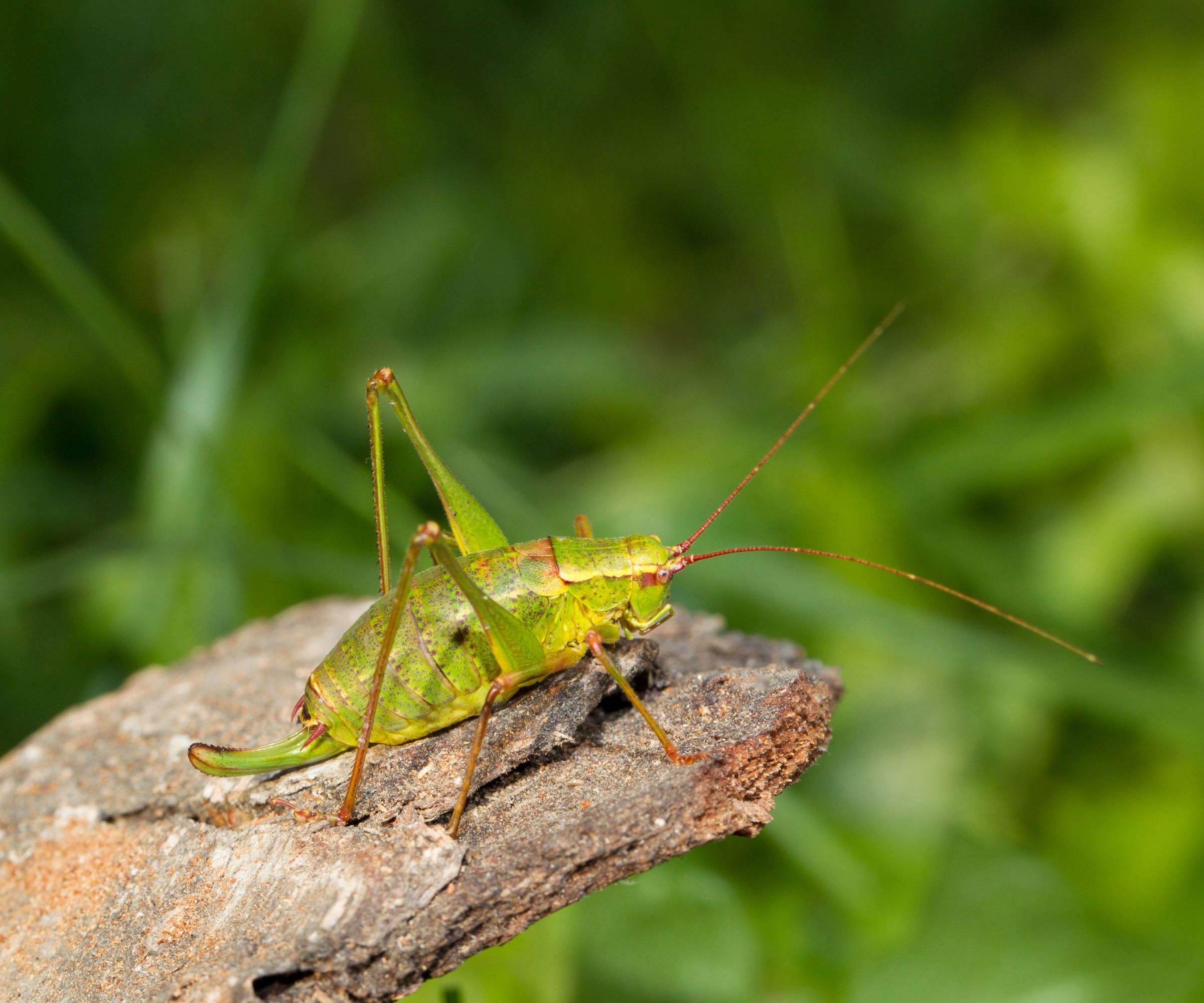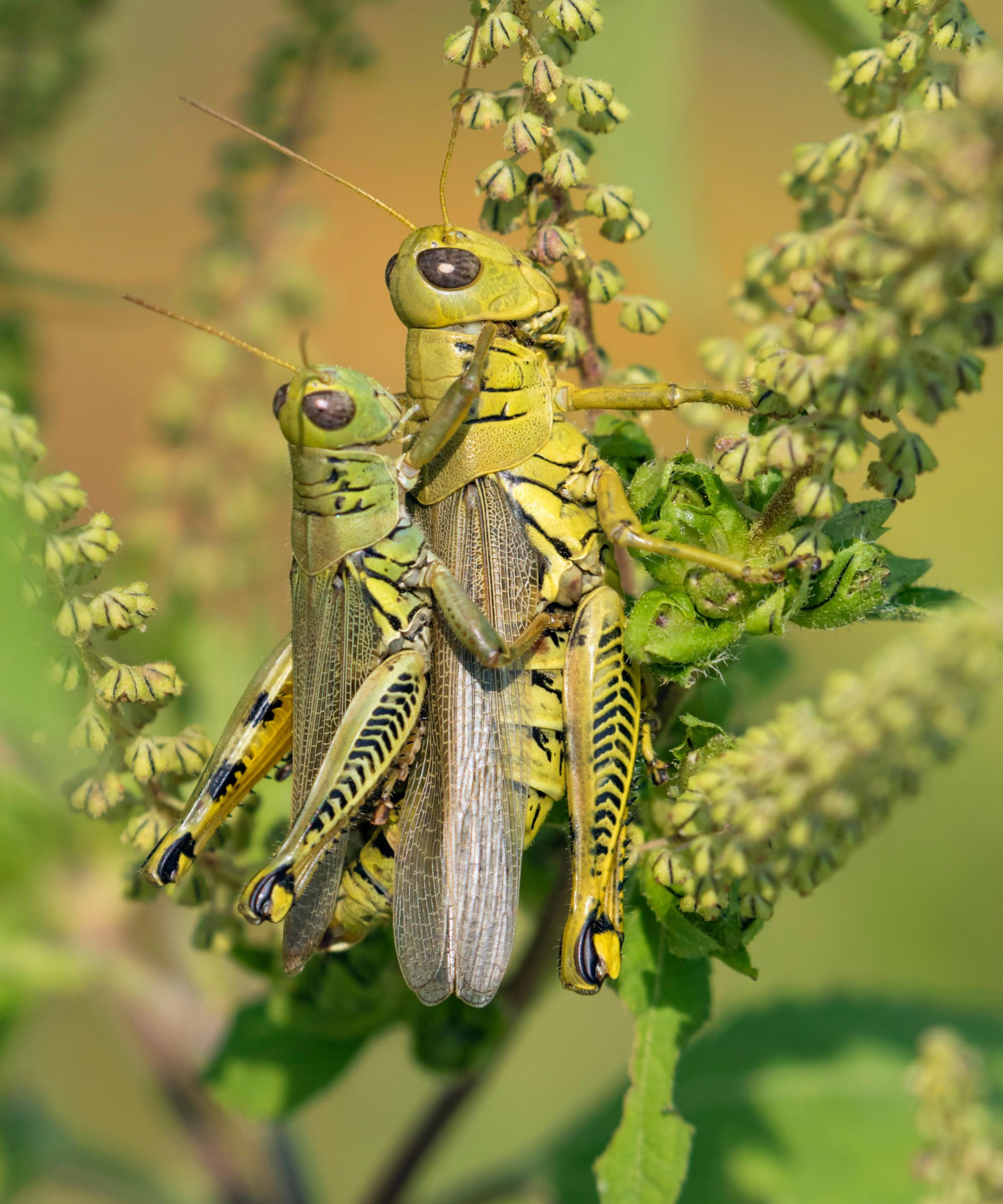How to get rid of grasshoppers – to protect your garden from damaging pests
Protect your plants from greedy grasshoppers with these easy tricks


Grasshoppers are amongst the most damaging pests to have in a garden. Although not dangerous, their natural indifference when it comes to their food source means they can quickly munch their way through a garden with ease.
These small herbivores mostly eat leaves but can also often devour stems, flowers, and seeds too, making their damage immeasurable if they infest your garden ideas in large numbers.
Here, we look at seven ways to get rid of grasshoppers naturally from your garden so you can protect your plants without harming pets or useful wildlife.
How to get rid of grasshoppers naturally

Although there are many commercially available pesticides that can help to get rid of grasshoppers, stronger poisons can cause further damage to your garden and cause harm pets and small children.
'Using natural pesticides is more beneficial to your garden and to the environment more generally,' says Rachel Crow, garden editor for Homes & Gardens. 'Natural pest treatments often use things found around the house or harmless organic materials that can help you to achieve healthier, long term results as opposed to quick fix chemical based products.'
1. Neem oil
Neem oil is a natural deterrent against grasshoppers and is great addition to natural predators or garlic spray for an extra line of defence.
Combine two quarts of warm water with half a teaspoon of liquid dish soap and add three teaspoons of neem oil. Spraying this mixture onto plant will slow down grasshoppers and even stunt their growth.
2. Garlic spray
Grasshoppers are particularly susceptible to strong scents such as garlic which can discourage them from approaching your plants. Like many homemade bug sprays, garlic spray can be made easily with items you likely have in your home already.
For a high concentrated spray, blend two heads of garlic with one to three cups of boiling water before leaving to sit, covered, overnight. Strain the mixture before pouring into a spray bottle and applying liberally around your garden.
3. Diatomaceous earth
'A common gardeners tool, diatomaceous earth is an excellent line of defence against a vast majority of bugs and plant pests,' Rachel explains.
This fine grit works by cutting the insects bodies and absorbing escaping moisture, drying out the bugs. While diatomaceous earth is typically used for common houseplant pests, it can prove a good first line of defence in your outside garden too.
4. Pesticidal soaps
A pesticidal soap made specifically for grasshoppers can help to kill the bugs quickly without damaging your plants or fruits. Spray the soap onto your plants every one to two weeks for the best results.
5. Encourage natural predators
A range of wildlife act as natural predators for grasshoppers and often do not cause damage to your garden. 'Most insect eating wildlife such as birds, small snakes, toads, and lizards can help to reduce or eliminate grasshoppers from your garden, preventing infestations from taking root,' says Rachel.
Avoid discouraging these creatures and instead make your garden a welcoming place wildlife. Consider wildlife garden ideas to transform your plot into a nature-friendly space or placing food such as seeds out for birds.
6. Set up natural traps
Bait traps will help to trap and kill grasshoppers who wander around your garden. The easiest natural trap is a molasses trap, made up of 10 percent molasses's and 90 percent water.
The sweet smelling mixture will attract the grasshoppers and trap them due to its viscosity, drowning the bugs in the water. It is worth using natural traps in conjunction with other control measures to ensure effectiveness.
7. Dust plants with flour
'All-purpose flour is a common household commodity that can work wonders against grasshoppers,' says Rachel. 'Flour sticks to the mouths or insects and leaves them unable to eat, protecting your plants and ridding your garden of the troublesome grasshoppers.'
How to know if you have grasshoppers

Grasshoppers leave obvious destruction in their wake. With these critters eating up to half of their body weight in vegetation a day, you will likely see a sea of chewed, ragged, or hole leaves, stems, fruits, and flowers around your garden if grasshoppers have made their home there.
How to prevent grasshoppers

'One of the best ways to prevent grasshoppers is by tilling your soil twice a year,' suggests Rachel. 'Grasshoppers lay their eggs on plants and in the soil in late summer where they will lay dormant until the following spring.' Tilling your soil semi-regularly can help to upset eggs and prevent their hatching.
Regularly pruning and tidying your garden will help to prevent grasshoppers from seeking shelter on your property while spraying strong scents such as garlic will deter these pests from venturing into your garden border ideas.
It may be a good idea to avoid getting rid of lizards from your garden as these harmless creatures act as natural pest control for grasshoppers to prevent too much work on our part.
What attracts grasshoppers?
There is a range of things that can attract grasshoppers to your yard, from an abundance of healthy vegetation such as flowers or vegetable garden ideas, to an environment with very few natural predators such as lizards, birds, and larger spiders. If your garden is dense with weeds, and plants, or has fallen logs, grasshoppers may be encouraged to set up a home in your garden and take advantage of the dense growth for a shelter.
Sign up to the Homes & Gardens newsletter
Design expertise in your inbox – from inspiring decorating ideas and beautiful celebrity homes to practical gardening advice and shopping round-ups.

Chiana has been at Homes & Gardens for two years and is our resident 'queen' of non-toxic living. She spends most of her time producing content for the Solved section of the website, helping readers get the most out of their homes through clever decluttering, cleaning, and tidying tips. She was named one of Fixr's top home improvement journalists in 2024.
-
 Ina Garten's storage pantry is an insightful window into all of the best cookware used by the chef – and it's easy to recreate on your kitchen shelves from $48
Ina Garten's storage pantry is an insightful window into all of the best cookware used by the chef – and it's easy to recreate on your kitchen shelves from $48The beautiful dishware in The Barefoot Contessa's Hamptons pantry showcases the tools she uses most often to cook – this is exactly how you replicate it
By Sophie Edwards Published
-
 Extend the lifespan of your appliance with 5 simple but crucial washing machine maintenance tips
Extend the lifespan of your appliance with 5 simple but crucial washing machine maintenance tipsFrom cleaning the filters to keeping the door open, experts reveal the washer tips they swear by
By Andy van Terheyden Published